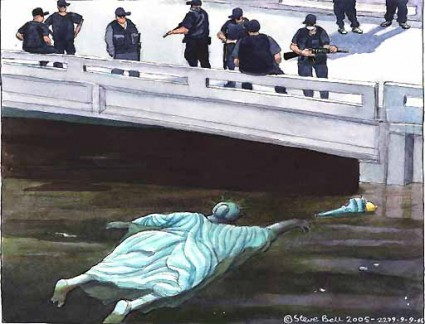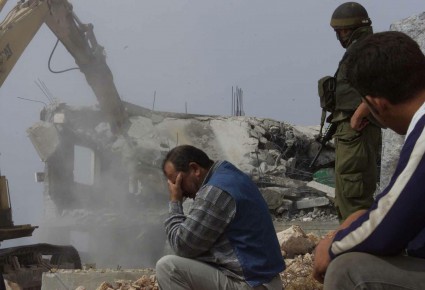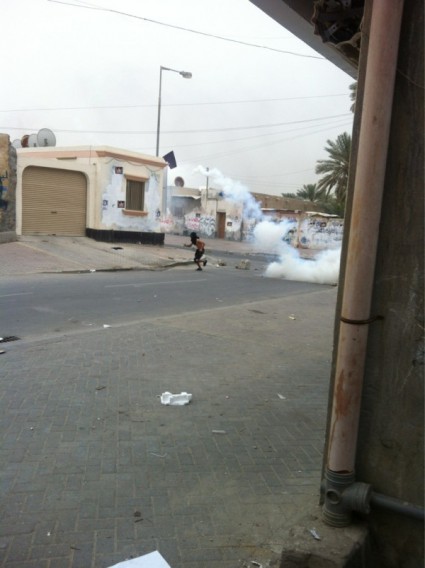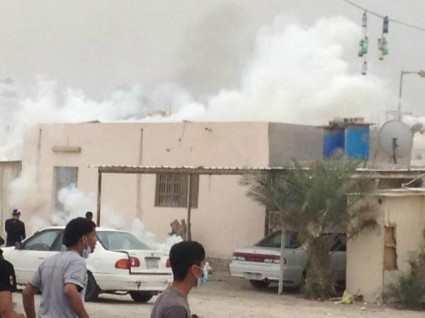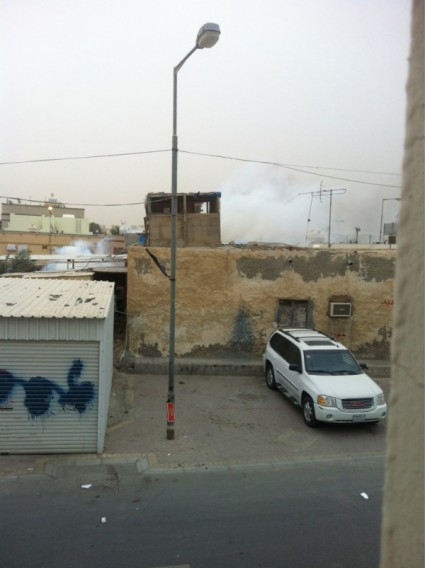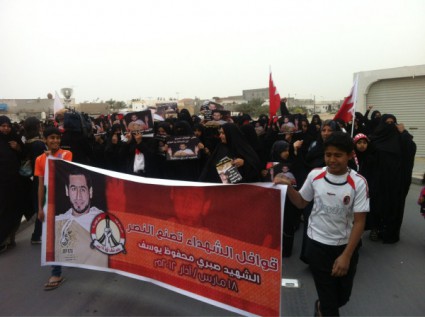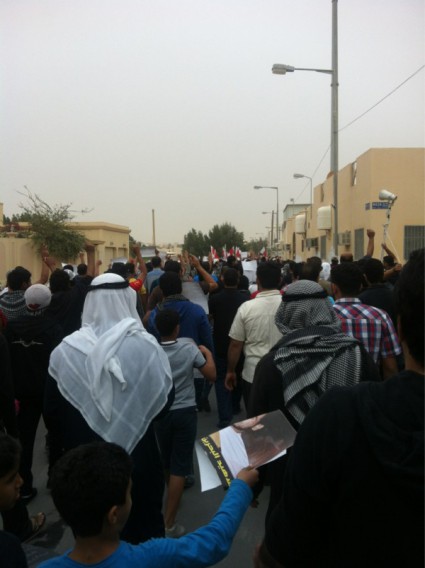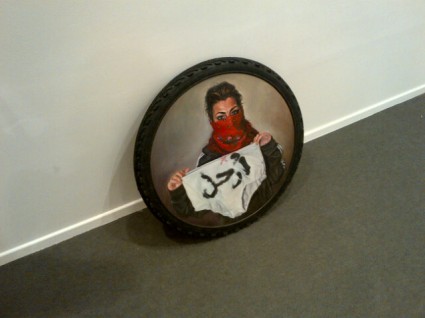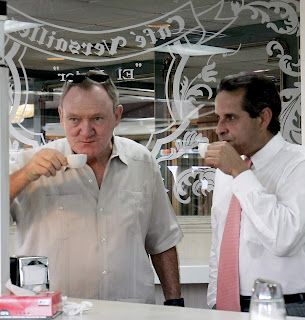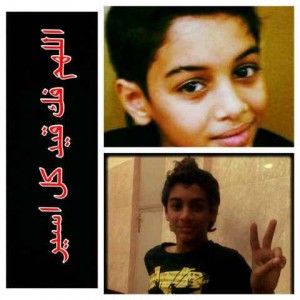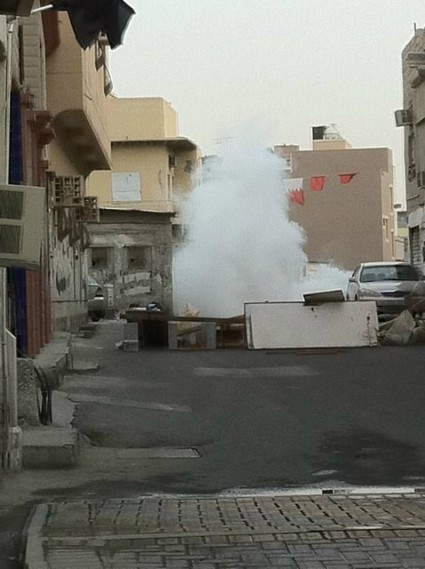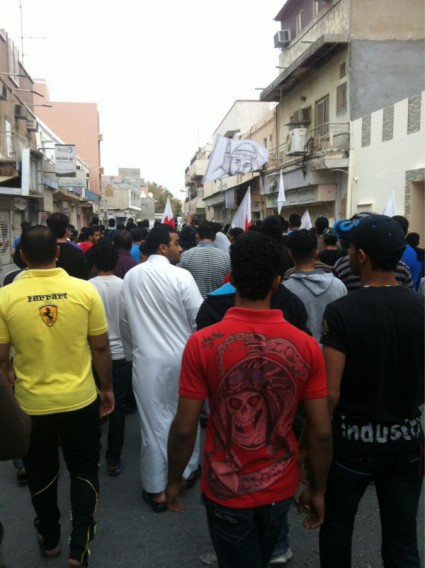Posts from — March 2012
Bahrain “Police Cameras” – no matter Police impunity is justice dead
Bahrain police install cameras to curb abuse
By Andrew Hammond – 22 March, 2012 – Reuters
MANAMA (Reuters) – Bahrain is installing video cameras in police stations to try to clean up its human rights image after crushing a pro-democracy uprising last year, but activists say off-camera abuse continues in other locations.
At al-Hoora station in Manama, closed circuit television will record police interrogations in rooms with padded grey walls. Rooms without cameras are set aside for detainees to consult lawyers. Other areas of the station are also monitored.
“We chose the color grey because it’s an international standard and it calms people. Anyone in a state of violence has to be calmed down,” said Brigadier Mansour Alhajeri, a police officer conducting a tour for journalists.
He said seven other stations were now being fitted with the monitoring system and all 33 stations would be covered by October.
But the cameras, introduced after an inquiry led by international jurists uncovered five deaths under torture last year, will not be installed in at least five riot police bases where activists say youths have been beaten.
“They don’t detain anyone, any arrests will be handed over to police,” police chief Tareq al-Hassan said when about the absence of cameras in the bases from where riot police using jeeps and armored vehicles move to handle protests.
The United States, which sees Bahrain as an ally in its conflict with Iran, has held up arms sales, including anti-tank missiles and armored humvees, until the Gulf island state shows progress in implementing human rights reforms.
Bahrain has been in turmoil for over a year as opposition parties dominated by the Shi’ite majority population demand an end to the Al Khalifa family’s hold on power and Shi’ite youths clash daily with Sunni-dominated riot police, many of them foreign hires.
Banking, tourism and real estate have slowed as the unrest scares off investors and strains the economy, while the clashes have intensified in the past three months.
Police say they show restraint in the face of rioters who attack them with petrol bombs and iron bars, damaging vehicles and wounding personnel.
But opposition and rights activists say 32 civilians have died since June, many from the effects of tear gas or direct hits by tear gas canisters and sound bombs.
The government questions the causes of death and their attribution to the political conflict.
The U.N. High Commission on Human Rights said this week it was concerned about a disproportionate use of force and excessive use of tear gas and would investigate the death toll.
OFF-CAMERA BEATINGS?
Bahraini rights activists list three informal detention centers where Shi’ite youths are beaten up by riot police before release, while others are beaten in the street.
“More than 160 people have been beaten in these places,” said Mohammed al-Maskati, head of the Bahrain Youth Society for Human Rights, naming one site as a youth hostel in Sanabis which police acknowledge has been transformed into a riot police base.
Maskati said abuse had moved out of the range of cameras.
“In the past four months I never heard of anyone abused in a police station. They are hit before they reach there, that is the technique they use now,” he said, citing 10 teenagers mistreated in an unused building in Dar al-Kulaib this week.
A 16-year-old was abducted on Wednesday in Sanabis and found unconscious several hours later with his hands tied, underpants removed and trousers pulled down. His family filed a complaint to public prosecutors, blaming plainclothes detectives.
The interior ministry said it was investigating the incident.
John Timoney, a former Miami police chief hired to advise on the reforms, acknowledged that monitoring of detainees before they arrive in police stations was a relevant concern.
“If an arrest is effected, they should be taken to the nearest police station in that area. I take your point – police officers are directed to take them to the nearest police station,” he said when questioned at a news conference.
He added: “If anybody has any information on secret locations of that nature, we want to hear it.” …source
March 22, 2012 No Comments
Bahrain Medics Show Trial: This Is Not Syria, Therefore No Western Outcry
Historically, to maintain this excruciating state of inequality, the Bahraini rulers developed a system of governance and state security apparatus that is “bullet-proof to reform”. Under American and British tutelage, the Bahraini rulers became adept at presenting the kingdom as a relatively benign monarchy. They may have acquired the modern semantics and appearance of political progressivism, such as referring to the kingdom as a constitutional monarchy with a (rigged) parliament instead of an absolute monarchy as in neighbouring Saudi Arabia and the other Gulf sheikhdoms. But not far below the surface, Bahrain’s institutionalized despotism was always the dominant reality.
Bahrain Medics Show Trial: This Is Not Syria, Therefore No Western Outcry
by Finian Cunningham – Global Research – 22 March, 2012
Bahrain’s disgraceful show trial of medical staff is set to continue, with news this week that 20 doctors and nurses are to be retried in a civilian court on trumped-up charges of subversion against the US-backed regime.
The medics were already sentenced by a military tribunal (a military tribunal!) to up to 15 years in prison after months of being held in illegal detention, denied legal counsel and subjected to torture.
Moving their case to a civilian court is presumably meant to signal a concession by the regime. But what it illustrates is that the Al Khalifa royal rulers of Bahrain are unreconstructed despots who are implacably set against accepting any kind of democratic reform.
The persecution of the majority Shia population – 70 per cent of the island – by an unelected Sunni elite is business as usual as epitomized by the vindictive targeting of medics whose only “crime” was that they treated hundreds of people injured in the state’s brutal crackdown against the pro-democracy movement.
Recently, Washington has been doing its PR best to present the monarchy in the Persian Gulf kingdom as being belatedly open to reform – this after a year of unrelenting repression against a largely peaceful pro-democracy uprising.
Bahraini grassroots activists are concerned that sections of the official opposition belonging to the Shia Al Wefaq political society are being groomed by the US State Department to accept a “compromise deal” with the royal rulers that would effectively see the monarchy remaining in power and the status quo merely being given a facelift.
King Hamad bin Isa Al Khalifa has been praised in the US corporate media for overseeing “brave” moves towards political power-sharing and dialogue with the mainly Shia-led opposition.
Washington’s envoy on human rights Michael Posner and former national security advisor Elliott Abrams have talked up “important steps” by the Bahraini regime towards reform.
However, no amount of Washington spinning can conceal the facts of life: that the US-backed Bahraini regime will continue violating human rights and international law in order to maintain its stranglehold hold on political and economic power at the expense of the Shia majority.
For 280 years, the Sunni rulers, who invaded the country from neighbouring Qatar, have sat on the chests of the indigenous Shia, and they are not going to give up their privileged seats of comfort. The Al Khalifa dynasty has enriched itself through graft and corruption while the majority of Bahrainis struggle with unemployment and poverty. …more
March 22, 2012 No Comments
Interview with Bahrain’s Coalition of February 14th Youth
Bahrain’s Revolutionaries Speak: An Exclusive Interview with Bahrain’s Coalition of February 14th Youth
by Toby C. Jones – 22 March, 2012 – Jadahliyya
In spite of claims that Bahrain’s revolution has failed, the reality is that peaceful protests, a campaign of civil disobedience, and anti-Al Khalifa energy is at an all-time high. The regime’s reliance on heavy-handed violence has failed to quell the country’s revolutionary spirit or stamp out the opposition. If anything, the yearlong brutal siege against its own citizens has strengthened the resolve of anti-regime critics and their determination to carry on. Among the most determined to keep the revolution alive is the Coalition of February 14th Youth, an anonymous and decentralized political network that has coordinated months of activism and protest. While Bahrain’s older and more visible political societies, including al-Wefaq and Wa’ad, have sought and failed to negotiate with the government over the last year, the Coalition of February 14th Youth has steadily earned popular legitimacy for its commitment to revolutionary principles and action. Out of fear of arrest, the Coalition has coordinated its efforts primarily through social media, most notably on Twitter and Facebook. Until now they have cautiously avoided speaking directly with the media.
Toby C. Jones (TJ): How would you describe the February 14 Youth Coalition? Who is represented in the coalition? How representative is it?
Coalition of February 14 Youth (CFY): February 14 Youth are all those revolutionaries that stood firm on the streets ever since they lit the spark of a popular revolution on 14 February 2011. The coalition is merely a byproduct of this revolution and was formed out of a few of its active revolutionary groups. The February 14 Coalition derives its legitimacy from the popularity of the revolution and its goals.
TJ: What is the coalition’s relationship with the other opposition movements, most notably Al-Wefaq?
CFY: The coalition’s relationship with other opposition groups is based on the principle of respect and considers them integral in the struggle. It values all efforts that are made by them to protect the rights of the people including their right to self-determination as legislated in international law and conventions.
TJ: What is your relationship with non-registered opposition movements such as Haq, Al-Wafa, the Bahrain Freedom Movement, and others?
CFY: Our objective in the coalition with regards to all other opposition groups is to deal with them positively in a manner that serves the revolution and its goals, taking advantage of all expertise and opinions, while emphasizing the need to close ranks amongst revolutionary groups against the common enemy, the bloody Al-Khalifa regime.
TJ: What are the coalition’s objectives? Is the coalition committed to the fall of the Al-Khalifa or is there the possibility of a negotiated resolution with the regime?
CFY: The first and foremost goal that revolutionaries are struggling for is the liberation of our land from Saudi occupation and the overthrow of the Al-Khalifa regime, which has lost its popular and constitutional legitimacy. Once that is achieved, the people can choose their own destiny and choose the political and economic system that meets their ambitions and aspirations. We will not under any circumstance accept a compromise with this bloody regime that continues to violate our human rights. We are determined to liberate our precious homeland from dictatorship, and build a nation of justice, dignity, and equality for all its citizens. …more
March 22, 2012 No Comments
The “lovely, gentle, and beautiful Israeli occupation
Public radio station fires editor who dared to speak out about Israel’s ‘brutal military occupation’
by Philip Weiss – 22 March 22, 2012 – Mondoweiss News
Ugly news about the American discourse, and the role of the Israel lobby inside liberal institutions. A longtime editor at a public radio station in Baltimore has been fired in part because he questioned US pandering to Israel. David Zurawik reports in the Baltimore Sun:
Sunni Khalid, managing news editor at WYPR-FM, has been dropped by the public radio station after more than nine years on the job there.
Khalid, a former Baltimore Sun reporter, had been on probation in February for comments he posted on the Facebook page of a friend questioning the influence of Israel on American politics.
“I, for one, have had enough of this pandering before the Israeli regime,” he wrote. “The war-mongering toward Iran has, once again, distracted the world from Israel’s brutal military occupation of the West Bank, East Jerusalem and the Golan Heights.”
March 22, 2012 No Comments
Syria, Bahrain: A Tale of Two Uprisings… One Fabricated, the Other Forgotten
Syria, Bahrain: A Tale of Two Uprisings… One Fabricated, the Other Forgotten
by Finian Cunningham – Global Research – 19 March, 2012
The violent turmoil in Syria and Bahrain over the past year, taken together, provides a sharp comparative case study of the deception and hypocrisy of Western governments and the mainstream media.
It also points up the nefarious role of the pro-Western Arab states, in particular the Persian Gulf monarchies headed by Saudi Arabia.
Last week marked an exact anniversary for Syria and Bahrain. On the 15 March 2011, Syria saw the beginning of an armed insurgency described as “anti-government protests” in the Southern city of Daraa, on the border with Jordan. While the state forces of President Bashar Al Assad responded ruthlessly, from the outset it was clear that the anti-government “protesters” were heavily armed and well organised.
The events in Syria mirrored those in Libya, where opposition groups were also heavily armed and ready to use violence from the outset. In both Syria and Libya, the apparent protests were distinctly different from those seen in most other Arab countries, such as Tunisia, Egypt, Jordan, Yemen and Bahrain, where there was a groundswell of popular opposition to the incumbent Western-backed regimes and where dissent was largely peaceful.
This key difference can be explained because Western powers and their proxies, such as Israel, Turkey and the Gulf Arab states, were instrumental in arming and directing the supposed anti-government opposition in both Syria and Libya.
Special forces from NATO powers Britain and France were, tellingly, active on the ground from the get-go, lending their expertise in techniques of sabotage and terrorism.
Saudi Arabia and Qatar in particular were also instrumental in driving events in Syria and Libya, providing financial support, weapons, covert fighters and strident diplomatic backing for the self-styled “transitional councils”. In the instance of Libya, NATO’s involvement was scaled up to a full-blown aerial bombing campaign to assist the so-called rebels on the ground. Such overt NATO aggression has not yet transpired in the case of Syria, but it is a contingency that Western governments are only shying away from for now out of political calculation.
To get back to Syria’s comparative twin in this case study, Bahrain, the Persian Gulf kingdom also saw an upsurge in violence on the 15 March 2011 – but for markedly different reasons. In the month prior to that date, Bahrain had witnessed a truly mass uprising against the Al Khalifa monarchy.
Peaceful demonstrations in the capital, Manama, drew crowds of up to 300,000 – nearly half the indigenous population of the tiny oil-rich kingdom. The protest movement against the US-backed autocratic Sunni rulers had set up a permanent peace camp near the financial district of the capital. After four weeks of peaceful rallies calling for the downfall of the monarchy, the Bahraini uprising was ruthlessly attacked by the combined state forces of Bahrain, Saudi Arabia, Qatar and the other members of the so-called Gulf Peninsula Shield Force which had crossed the King Fahd Causeway linking Saudi Arabia and Bahrain. The military invasion to crush a civilian pro-democracy movement – one that was merely calling for an elected government to replace the decades-long dictatorship of the Al Khalifa dynasty – was given the green light by both Washington and London. . …more
March 22, 2012 No Comments
Funeral in Sanabis for Gassing victim while Gas rains down on Shahrakan
March 22, 2012 No Comments
Funeral Rally for Martyr, 27 Year Old Sabry Mahfood – Death by MOI Gassing
March 22, 2012 No Comments
Convoy of UK-made Saudi Arabian armoured personnel carriers arrives in Bahrain
March 21, 2012 No Comments
Obama side-steps Congress on Weapons to Bahrain – deal made via NUROL Turkey (US-BAE Subsidary)
editor: The Armored Personnel Carriers or Armored Personnel Vehicles, President Obama said would be used in Bahrain against “External Threats Only” have appeared in Bahrain, purchased from US BAE Subsidiary NUROL in Turkey. They are, even today, being used extensively against Protesters in the Villages of Bahrain. Phlipn
FNSS Defence Systems Co.
Foundation 1988 Phone 0090 312 497 43 00
Employees 610 Fax 0090 312 497 43 01
General Manager & CEO Nail KURT
E-mail info@fnss.com marketing@fnss.com.tr
Address Pk. 37 06830 Gölbaşı
ANKARA – TURKEY
Web www.fnss.com.tr
FNSS Savunma Sistemleri A.Ş. is a joint venture company established by NUROL Holding of Turkey and BAE Systems Land & Armaments L.P. of USA. FNSS is a leading manufacturer and supplier of tracked and wheeled armored combat vehicles and weapon systems for the Turkish Armed Forces and Allied Armed Forces.
The company was established in 1988 to manufacture 1698 Armored Combat Vehicles (ACV’s) for Turkish Armed Forces under a direct commercial contract (1st package ACV) with the Undersecretariat of Defense Industries (SSM). The facilities situated on a total area of 280.000 square meters in Gölbaşı, Ankara started the production in August 1991. The 1st package ACV contract has successfully been completed in 2000.
410 people work at FNSS’s Ankara facilities as of March 2011. Additional 200 are employed in its operations outside Turkey.
FNSS has a full range of Family of Tracked Armored Combat Vehicles (ACV). The ACV is a combat proven medium weight, low silhouette armored vehicle capable of high mobility in all kinds of terrain and amphibious operations on rivers and lakes. ACV is designed with the necessary mounting provisions to transform the vehicle into various vehicle configurations as per the user requirements. The Advanced Armored Personnel Carrier (AAPC) chassis forms the base vehicle for all other members of the family of vehicles.
Besides manufacturing new vehicles, FNSS is also capable of upgrading and modernizing aged M113 Family of Vehicles to M113A350/300 configurations including improvements to survivability and lethality.
The company has exported an Armored Recovery Vehicle and recently completed the deliveries of upgraded Armored Personnel Carriers to Philippines Armed Forces. FNSS has also modernized and upgraded AIFV and M113 vehicles for Bahrain Defence Force.
…more
March 21, 2012 No Comments
Congressman Peter King N.Y.: “thousands of Hezbollah inside the United States” – needs time out to adjust meds.
Peter King warns: Hezbollah agents in U.S.
By MJ LEE – 21 March, 2012 – Politico
Rep. Peter King (R-N.Y.) warned Wednesday that there are hundreds — maybe even thousands — of Hezbollah agents inside the United States capable of launching a terror attack if U.S.-Iran tensions continue to escalate.
“The American intelligence community … believes we are very much at risk for an attack by Iranian operatives, which would be Hezbollah, that is a terrorist-trained force in this country. It really is the ‘A’ team of international terrorism — far more sophisticated than Al Qaeda,” the chairman of the Homeland Security Committee said on CNN’s “Starting Point.”
King, whose committee is holding a hearing Wednesday to “educate” Americans and members of Congress about the threat of Iran, explained that Hezbollah has had agents and operatives inside the U.S. for many years for the purpose of fundraising and recruiting.
And while the conventional wisdom until recently has been that they were not necessarily stationed in the U.S. to carry out terrorist attacks, the Republican congressman warned Wednesday that especially given the recent tension between Israel and Iran, as well as questions surrounding Iran’s nuclear aspirations, a scenario in which Hezbollah agents mobilize an attack remains a real possibility
…more
March 21, 2012 No Comments
Saudi Arabia Buying the Revolution One Country at a Time
Foreign guarantors help plug emerging funding gap
21 March, 2012 – By Carolyn Cohn – Reuters
LONDON (Reuters) – With refinancing becoming a giant headache for sovereign debtors across the globe, some struggling emerging economies are securing guarantees from richer nations or multilateral development banks to bolster their chances of selling bonds to wary investors.
The guarantee provides the emerging country borrower with access to otherwise-closed international capital markets, while the guarantor is extending financial support to a friendly trading partner at relatively low cost.
It’s already being used in one Arab Spring country – Tunisia – and analysts say it could extend to others in the region, like Egypt.
Tunisia, which suffered several ratings downgrades in the past year following its Arab Spring uprising, last week said it was planning a U.S.-guaranteed dollar bond in the next few months.
And the tiny indebted nation of St Kitts & Nevis last week completed a debt exchange with new debt carrying a small guarantee from the Caribbean Development Bank.
The guarantees are particularly helpful in countries in the Middle East that have been through political and financial turmoil in the past year.
Setting a precedent for this type of guarantee, the United States underwrote a borrowing program for Israel 10 years ago to help the country out of economic difficulties.
“Over the medium term, we are going to see a series of funding gaps in the Middle East region – the guaranteeing of sovereign debt is going to be one way of resolving this,” said Florence Eid, chief executive of research and advisory firm Arabia Monitor. …more
March 21, 2012 No Comments
Art Dubai – Censored Exhibit Libyian Artist
March 21, 2012 1 Comment
British MP praises Bahraini leadership

British member of parliament Mr. Conor Burns
poses for pictures at BNA news conferecne.
British MP praises Bahraini leadership
21 March, 2012, BNA
London: March 21 — (BNA) British member of parliament Mr. Conor Burns, from Bournemouth West made the following remarks about last year’s events in Bahrain praising the initiatives of His Majesty King Hamad bin Isa Al Khalifa Monarch of the Kingdom of Bahrain for the creation of the Independent Commission of Inquiry (BICI) and the government for its implementation of BICI’s recommendations, national dialogue and reconciliation in the Kingdom of Bahrain.
I think His Majesty the King was very clear in carrying out reforms and appointing the Bahrain Independent Commission of Inquiry (BICI) which was an example for His Majesty’s keenness in dealing with BICI’s recommendation in a serious manner from the Bahraini government and implementing them which is a significant landmark that Bahrain is keen on reformation in order to build its democracy and Bahrain’s compliance with application of human rights.
Definitely, Bahrain is an important, distinctive example of current (political) events in the region although Bahrain is quite different as there are other countries which resorted to violence and corruption in their institutions. Surely, the situation in these countries differs from the situation in Bahrain. Bahrain has been on the path of reforms over the past decades and therefore it is different from the other countries. …trash bin
March 21, 2012 No Comments
Despite Arrests and Torture, Bahrain’s Khawaja Family Fights On
Despite Arrests and Torture, Bahrain’s Khawaja Family Fights On
21 March, 2012 – AlterNet
This article originally appeared in Jadaliyya, an independent ezine produced by the Arab Studies Institute.
An important aspect of many of the popular movements of the Arab Spring has been the emergence of different generations of activists from the same families. Abdulhadi al-Khawaja and his daughters Zainab al-Khawaja and Maryam al-Khawaja epitomize such cross-familial activism. Abdulhadi is among the most renowned human rights activists in Bahrain. A co-founder of the Bahrain Center for Human Rights (BCHR), a regional representative for Ireland-based Frontline Defenders, a consultant for Amnesty International, and a member of The Arab Group for Monitoring Media Performance, al-Khawaja has dedicated his life to achieving political freedom and human rights for all in Bahrain.
After being forced to seek political asylum in Denmark for twelve years, following constant persecution by Bahraini authorities for his activism, the al-Khawajas moved back to Bahrain in 2001, based on promises of “democratic reforms” that would transform the hereditary emirate into a constitutional monarchy. In the following year, the self-proclaimed King Hamad promised greater political freedom and laws that would allow the formation of independent human rights groups. Abdulhadi co-founded the first independent human rights organization in Bahrain, but soon after, the repeated arrests and beatings of the activist resumed …more
March 21, 2012 No Comments
Fly in the ointment – can al Saud buy the “Oppostion” in Bahrain?
Saudi Arabia pushing Bahrain to solve crisis, fears Syria effect
By Andrew Hammond – 21 March, 2012 – Reuters
MANAMA (Reuters) – Saudi Arabia wants Bahrain’s government and opposition to resolve a political crisis that it fears could worsen because of the sectarian fallout of fighting in Syria and destabilize its Eastern Province, a diplomat and opposition politician said.
Bahrain has been in turmoil since the Arab Spring protest movement first erupted a year ago. Clashes have become a daily occurrence, usually in districts populated by majority Shi’ite Muslims who have dominated the protests.
“We heard that at end of January the Saudis were reaching out to Wefaq and wanted to hear how Wefaq – if Act 1 was last year – how they were going to play their role in Act 2,” a senior Western diplomat said.
The leading Shi’ite opposition party Wefaq was involved in backroom talks during a pro-democracy uprising last year on reforms offered by Crown Prince Salman, but the they were cut short when Saudi troops rolled in and martial law was imposed.
The revolt was led by Shi’ite Muslim majority population on an island which is important to Washington as the base for the U.S. Navy’s Fifth Fleet.
The Shi’ite majority has called for sweeping democratic reforms that would reduce the Sunni ruling family’s monopoly on power and allow parliament real powers to legislate and form governments.
One year on clashes between riot police and youths in Shi’ite districts have escalated, with heavy use of petrol bombs against police who in turn use large amounts of tear gas. Activists say at least 32 have died since martial law ended, though police question the causes of death.
In January Wefaq members met with Royal Court Minister Khaled bin Ahmed for preliminary discussions on a formal dialogue on democratic reforms.
The diplomat said Wefaq, which faces radicalization among many Shi’ite youth who oppose the monarchy, had met for a second time with the minister in recent weeks.
“There is stuff going on but it’s getting more difficult than they imagined it would be. They are finding it difficult to get common ground,” he said, citing government fears that Wefaq would command a parliamentary majority. …more
March 21, 2012 No Comments
MOI Raping, Arresting Children to agitate and terrorize Villages – Secretary Clinton’s Appointee, John Timoney Collects Paycheck
March 21, 2012 No Comments
King Hamad’s, “barney boys”, Pillock and Dibble, step up for a round of good ‘ol colonial thuggery
BAHRAIN: AMERICAN AND BRITISH POLICE CHIEFS STEP UP STATE REPRESSION
January 8, 2012 – by Finian Cunningham -Global Research
Two former police chiefs from the US and Britain have brought discernible Western “expertise” to the Bahraini force only weeks following their appointments – a surge in repression and state terrorism.
Former Miami police chief John Timoney and his British counterpart, John Yates, formerly commander at London’s Scotland Yard, were assigned last month by Bahrain’s royal rulers to “oversee reform” of the Persian Gulf kingdom’s security forces. Officially, the appointment of the American and Briton was to bring Western professional policing to the Bahraini force and specifically to upgrade the human rights record of Bahrain’s ministry of interior and National Security Agency.
The assignments were announced by King Hamad Al Khalifa following a report by an international commission of inquiry into widespread human rights violations in the US-backed oil kingdom since pro-democracy protests erupted there last February.
As reported earlier by Global Research, the inquiry report and the subsequent appointment of the US and British police chiefs appeared to be a public relations exercise to burnish the tarnished image of this key Persian Gulf ally of Washington and London.
However, only weeks into their jobs, the Western commanders appear to have been given a remit that goes well beyond public relations, namely, to sharpen the repression against the pro-democracy movement.
Human rights activists and several political sources say that state forces have dramatically stepped up violence towards protesters and targeting of the Shia community generally. The diminutive island state of less than 600,000 nationals is comprised mainly of Shia muslims (70 per cent) who are ruled over by a Sunni elite installed by Britain when the kingdom gained nominal independence in 1971. American and British government support for the unelected Al Khalifa monarchy is viewed by the majority of Bahrainis as being at odds with their claims for democratic rights. …more
March 21, 2012 No Comments
Jackboots Without Borders – Bagman of Empire: John Timoney
Jackboots Without Borders
by Kevin Carson – 20 March, 2012 – Center for a Stateless Society
More than a year ago, I reported on the mission of Frank “Bagman of Empire” Wisner to Egypt (“Egypt: Let the Looting Begin,” Center for a Stateless Society, February 4, 2011). Wisner, formerly of Enron and AIG, was Obama’s plenipotentiary to Egypt, tasked with managing the post-Mubarak succession in as U.S.-friendly a direction as possible. Wisner’s father, by the way, was another Bagman of Empire; as a founding spook of the OSS and CIA he managed the overthrow of Arbenz and Mossadegh. Wisner had co-chaired (with another noted bagman, James Baker) a commission that developed a post-Saddam vision for the governance of Iraq. Just reading the “100 Orders” issued by the Coalition Provisional Authority, and the corporate looting pursuant to them, should give you a good idea of Wisner’s agenda.
Today’s column is about another Bagman of Empire: John Timoney.
Richard Moore wrote twelve years ago, in “Escaping the Matrix” (Whole Earth Catalog, Summer 2000) about the Empire importing technologies of repression from the imperial Periphery to the Core and using them to manage the domestic population.
It’s nothing new. It’s as old as Caesar bringing the legions from Gaul back across the Rubicon. But now it’s being done in reverse. A high-level maestro of political repression from the American domestic police apparatus has found lucrative employment in Bahrain.
Timoney had already established himself as a notable carpetbagger of repression within the United States. As Philadelphia’s Police Commissioner, he supervised the police riot at the August 2000 GOP Convention. His Gestapo tactics there, and later as police chief of Miami during the anti-FTAA protests, were dress rehearsals for the police repression of Occupy protests in hundreds of cities across America: Gassing and breaking the bones of unarmed people, preemptively arresting organizers, planting evidence — you name it, Timoney’s been there and done that.
From the outset of the Seattle movement, Timoney was its J. Edgar Hoover — warning shrilly of the “International Anarchist Conspiracy” to disrupt meetings of neoliberal institutions. He agitated relentlessly to apply the RICO statute to the anti-globalization movement. Timoney is a close associate of Tom Ridge, going back to the latter’s provision of political cover to Timoney’s police riot, and after the post-9/11 establishment of the US Department of Homeland Security was rumored to have close informal ties to much of the Department’s leadership. Although his prospects for high office in Fatherland Security never materialized, he went on to an extremely lucrative career as lobbyist for the security-industrial complex. And as police chief of Miami, he got a chance to further refine his jackbooted thuggery from the Philly days.
Now Timoney — along with fellow carpetbagger John Yates, assistant commissioner of the London Metropolitan Police — serves the Bahraini royal government. You know, the despotic Bahraini state that’s been engaged in brutal and murderous repression of the Arab Spring uprising there for the past year. Timoney, it seems, is for sale to any petty tyrant with petrodollars burning a hole in his pocket who wants to do a really high-class job (ahem) “using chemical weapons against his own people.” …more
March 21, 2012 No Comments
BYSHR Report: Prisoners in Bahrain are looking for Justice and Freedom
Report: Prisoners in Bahrain are looking for Justice and Freedom
20 March, 2012 – Bahrain Youth Society for Human Rights
King Hamad bin Isa Al-Khalifa will today (Tuesday) receive the final report of the National Commission incharge of following-up the implementation of the Bahrain Independent Commission of Inquiry(BICI) recommendations.
Bahrain Youth Society for Human Rights (BYSHR) issued this report to shed light on convicted in the courts of the National Safety (military courts).
“More than 100 demonstrators are still behind bars because of the harsh sentences in the courts of the National Safety (military tribunals)” Mohammed AL-Maskati, president of the BYSHR, said.
Report : Click Here
March 21, 2012 No Comments
Russia, China back UN council statement on Syria
Russia, China back UN council statement on Syria
21 March, 2012 – Al-Akhbar
Russia, China, and Western powers finally arrived at a joint position on Syria on Wednesday with the endorsement of a UN Security Council statement outlining a peace plan to resolve the country’s year-long crisis.
The statement demands Syria “immediately” implement a peace plan proposed by UN-Arab League envoy Kofi Annan and move to end hostilities and begin a democratic transition.
Speaking at a news conference in Berlin shortly before the statement was agreed to, Russian Foreign Minister Sergei Lavrov made clear that Moscow fully supported the amended text.
“The council text reflects the reality in Syria and supports Annan’s aims,” Lavrov said after talks in Berlin with his German and Polish counterparts. “We support it fully.”
“The most important thing is that there are no ultimatums…and no suggestions as to who carries more blame,” he said.
In New York, Russian UN Ambassador Vitaly Churkin said the council had “finally chosen to take a pragmatic look at Syria.”
US Secretary of State Hillary Clinton welcomed the statement as a “positive step” and warned Assad he faced “increasing pressure” if he did not implement the peace plan.
British UN Ambassador Mark Lyall Grant said the statement sends a “strong and united message to the government and all other actors in Syria that they need to respond…immediately” to Annan’s peace proposals.
French envoy Gerard Araud called the statement “a small step by the Security Council in the right direction.”
“A resolution is still on the table and we hope we will manage to obtain a Security Council resolution,” Araud told reporters. …more
March 21, 2012 No Comments
King Hamad’s deceipt and pretense of reform catches attention at UN
U.N.: Bahrain must probe reported protester deaths
By CNN Wire Staff – 20 March, 2012
(CNN) — The United Nations called on Bahrain on Tuesday to investigate reports of protesters and bystanders killed by security forces.
The announcement came as Bahrain’s king announced progress in making reforms, and an opposition member said new protests are scheduled for Friday.
“We have been receiving worrying reports of the disproportionate use of force by Bahraini security forces, including the excessive use of tear gas, the use of bird shot pellets and rubber bullets,” said Rupert Colville, a spokesman for the U.N. high commissioner for human rights.
“The use of tear gas in particular has reportedly resulted in a number of deaths of protestors and bystanders — and that number has reportedly risen in recent months,” he said. “Reliable sources indicate that the civilians who died from tear gas suffered complications from gas inhalation, and that security forces have been firing metal tear gas canisters from grenade launchers into crowds.”
The statement also expressed concern about “the health of human rights defenders who are on hunger strike in protest against their imprisonment for participating in last year’s mass demonstrations.”
It came shortly after King Hamad bin Isa al-Khalifa said he welcomes changes made in the country since a critical report was released in November about his nation’s crackdown on protesters.
“The government carefully studied the recommendations and received leading international legal, policing, media and other experts, to advise decision-makers on the most appropriate way for Bahrain to implement the structural and legislative reforms necessary,” Bahrain’s Information Affairs Authority said. “The king welcomed the ‘significant and broad progress’ that has been made.”
Bahrain’s Independent Commission of Inquiry issued the report that was highly critical of the authorities’ reaction to the protests, which began in February 2011, spurred by uprisings in Tunisia and Egypt. …more
March 21, 2012 No Comments
Sanabis Rape Crime Scene Gassed as Protesters Gather
March 21, 2012 No Comments
Sanabis Villagers fill the streets in wake of abhorent Police Rape
March 21, 2012 No Comments
APC enforces reign of impunity on Village of Sanabis following terror assault and rape
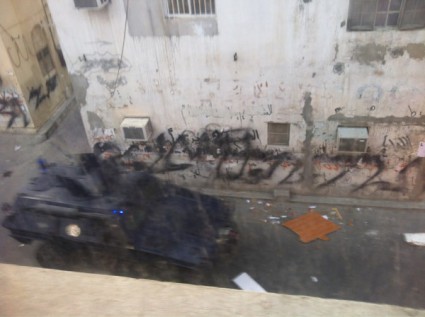
Report: Bahrain forces assault 16-year-old, activists say
21, March 2012 – blogR
A 16-year-old boy was reportedly beaten and sexually assaulted by security forces in Bahrain early this morning, activists report.
The picture of ‘Ali’, partly naked with marks of torture, has stirred up outrage amongst Bahraini activists on Twitter.
The teenage victim was reportedly kidnapped by security forces before being beaten and sexually assaulted and finally dumped in a farm in Sanabis, North West of Manama.
Said Yousif AlMuhafda, human rights defender, who met the victim says: “When I met him, he was unconscious and handcuffed, left in one of the garages in Sanabis without his underwear and bleeding”
‘Ali’ said he was attacked with a knife and punched several times, report Said Yousif AlMuhafda.
Said Yousif Al-Muhafda says the young boy was arrested before and stabbed by security forces as he refused to work undercover for them.
This terrible report comes as the King of Bahrain has expressed his satisfaction regarding progress made towards reforms especially regarding abuses committed by security forces.
March 21, 2012 No Comments
Rape and Assualt of Sanabis Villager as Human Rights Abusers move dark deeds into shadows
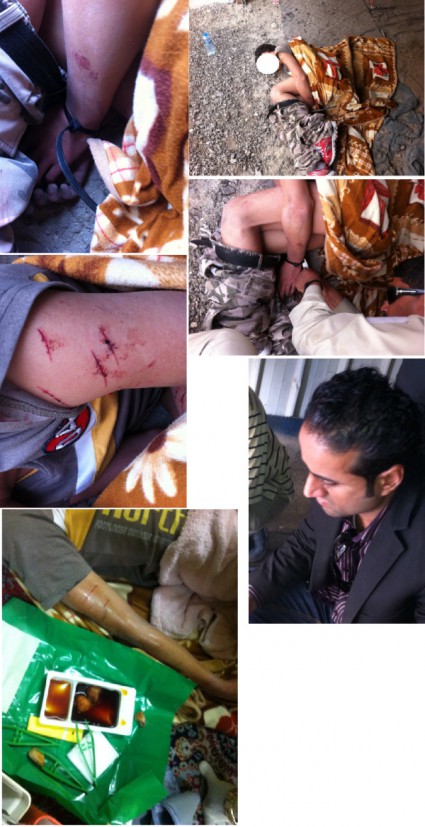 Human Rights Defender Said Yousif Almuhafda, bottom right, lends comfort to victim and documents crime scene.
Human Rights Defender Said Yousif Almuhafda, bottom right, lends comfort to victim and documents crime scene.
March 21, 2012 No Comments

